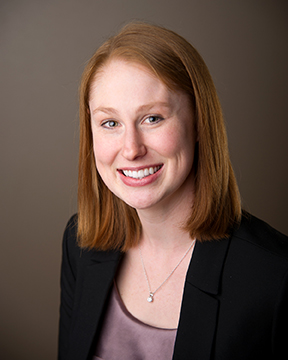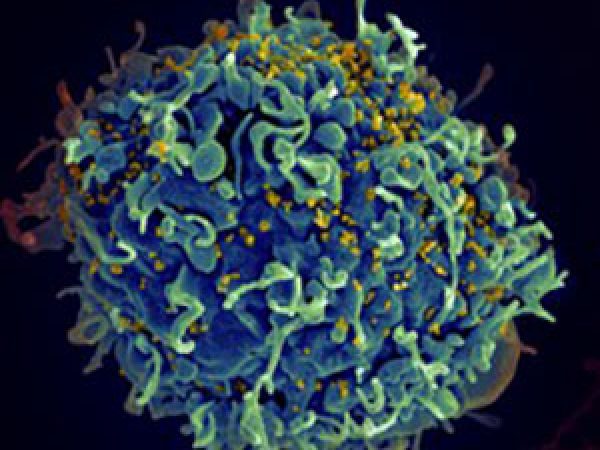Exploring Complement Biology to Improve Antibody-based Therapies for Non-Hodgkin Lymphoma
Among the many types of cancer acknowledged during the month of September is lymphoma, a cancer arising from a subset of white blood cells (lymphocytes) that compose an important part of the body’s immune system. Lymphoma is typically divided into two major classes, Hodgkin lymphoma and Non-Hodgkin lymphoma (NHL), which are differentiated by the types of white blood cells involved. NHL is considered the seventh most common cancer type, representing 4.3 percent of all new cancer cases in the United States. While the prognosis for NHL is favorable, with more than 70 percent of patients still alive five years after diagnosis, it is imperative to continue studying and understanding this disease so that new and better methods of treatment can be developed.
Laura M. Rogers, PhD, a postdoctoral fellow at the University of Iowa and recipient of a 2014 AACR-Millennium Fellowship in Lymphoma Cancer Research, is making important strides toward this effort. Her research is aimed at understanding the relationship between complement factor H (a protein critical to immune function) and treatment response to rituximab (Rituxan, an immunotherapeutic used to treat hematological malignancies) in patients with follicular lymphoma, the most common type of NHL.
Rogers’ interest in cancer biology began early in her career, during her graduate studies at the University of Iowa. “During my first-year graduate rotations, I actually wasn’t sure what area of biology I wanted to pursue,” recalls Rogers. “My choice to ultimately join a cancer group primarily stemmed from my interest in eukaryotic genetics.” Rogers also recognized the importance of cancer research to human health, and felt strongly that she could make important contributions to this ever-growing field. She also credits the strong mentorship she received while working in the laboratory of Adam J. Dupuy, PhD.
After receiving her PhD, Rogers moved on to a postdoctoral position with George J. Weiner, MD. In this position, she began to focus her research efforts on lymphoma. “Up to this point, I was not specifically involved in lymphoma research,” Rogers says. “What really drew me to Dr. Weiner’s lab was the translational nature of his work, and I saw opportunity in the gap between cancer biology and cancer immunology that would allow me to carve out a research niche for myself.” This bench-to-bedside approach to research holds particular interest for Rogers, as it allows her to continually appreciate the ultimate goal of this type of research. “The scientific puzzles are interesting,” notes Rogers, “but in the end, I want my work to benefit a living human being.”
Indeed, Rogers’ project was designed to achieve this goal. Antibody therapies, such as rituximab, have become the standard treatment for lymphomas and leukemias. Yet the details regarding how these antibody-based therapies work, as well as how tumor cells develop resistance to them, remains poorly understood. “My project is focused on a branch of innate immunity called complement, which is important for the antitumor action of rituximab,” Rogers says. “We found that individual variation in the amount of complement family protein expression seems to correlate with a patient’s response to rituximab therapy.”
According to Rogers, the important implications arising from her work are, “to determine whether we could (1) better predict patient prognosis using this information, and (2) improve patient response by additional therapeutic modulation of complement family proteins.” While she knows much work remains to achieve these goals, she maintains her optimism that the knowledge gained from her research over the past year could contribute to a better understanding of complement biology. “Complement biology itself is an understudied area in immunology, but one that is gaining steam due to complement’s involvement in so many diseases, not just cancer,” Rogers notes. “It is possible that basic observations made in the course of my studies might also increase our general knowledge of how complement activity is regulated.”
Rogers commented on the importance of the funding she received to complete this project to her career development. “This fellowship was my first external award,” recalls Rogers. “It allowed me to gain valuable experience in seeking funding for original ideas. To say that these skills are necessary for a successful career in science is an understatement.” Rogers also credited this support for boosting her confidence in her ability to design sound experiments that investigate important scientific questions, and will better equip her for a successful career in academic science. Rogers plans to remain in her postdoctoral position for the near future, but she intends to continue pursuing academic science as a career because, she says, “I strongly feel that research is where I’m meant to be.”




